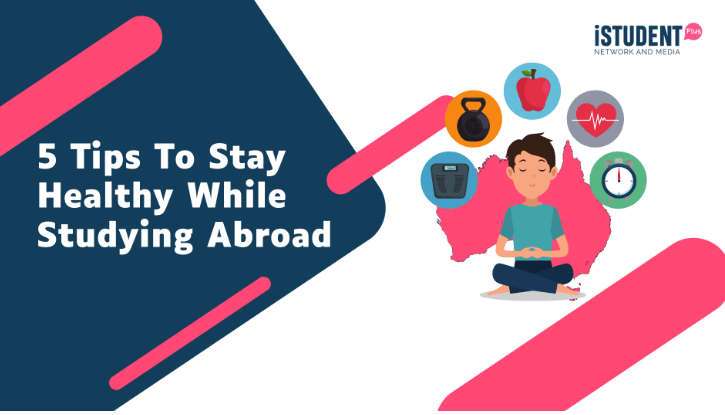Studying abroad can be an incredibly exciting and life-changing experience. Engaging in such an experience offers you the chance to immerse yourself in a new culture, acquire a fresh language, and connect with new people. This process can expand your perspective and cultivate a newfound appreciation for the world. However, being away from home can also be challenging, especially when it comes to taking care of your health. Here are some tips that you can follow to help you stay healthy while studying abroad:
This Blog Includes
Toggle1. Exercise regularly
Regular exercise is also an important part of maintaining a healthy lifestyle. Exercise not only helps to improve your mood, reduce stress and increase energy levels, but it also has other benefits. For example, exercise can help you to strengthen your muscles and bones, improve your heart health, and reduce the risk of chronic diseases such as diabetes. Moreover, finding an exercise routine that works for you and sticking with it can be challenging for some individuals; however, it is important to remember that even small amounts of exercise can have significant health benefits.
2. Maintain a balanced diet
Eating well does not necessarily means that you have to keep eating expensive food. What important is that you consumed a varied and balanced diet. A balanced diet include foods from different food categories such as fruits, vegetables, healthy fats (fish, olive, canola, corn etc), lean proteins and whole grains.
A tip for you; it is better and much healthier to cook your own food!
Merely eating healthy is insufficient; you should adhere to a proper eating schedule. You can start with breakfast that will helps to regulate your blood sugar level and gives you an energy boost. Breakfast always followed by the lunch time and then end your day with dinner, make sure to have your dinner at least two hours before your bed time
3. Stay hydrated
It is important to stay hydrated throughout the day. Drinking enough water can help to prevent dehydration, which can cause headaches, fatigue, and lack of focus. Additionally, staying hydrated can helps to regulate your body temperature and maintain healthy skin. We recommend that you drink at least 8 cups of water every day, but this amount may vary depending on individual factors such as activity level and climate.
To ensure optimal hydration, it is also advised to eat foods with high water content, such as fruits and vegetables, and to limit the intake of dehydrating substances like caffeine and alcohol.
4. Have enough rest
Getting enough sleep is not only crucial for maintaining good health, but it will also helps your body to recover and regenerate. Sleep is a vital process that allows our cells to repair and our brain to recharge for lack of sleep can lead to a variety of health problems such as fatigue, decreased concentration, and a weakened immune system. Getting enough sleep can positively impact your mood, cognitive function, and overall well-being.
It is recommended that adults get between 7-9 hours of sleep each night, but it is important to note that the quality of sleep is just as important as the quantity.
5. Prioritize your mental health
When studying abroad, it is essential to prioritize your mental heaelth. Moving to a new place with a different culture and environment can be an exhausting challenge for some people, they rather not experience feelings of homesickness, culture shock, or anxiety. Therefore, it is best to seek out support to help you manage these emotions. There are various ways to do this, such as joining a support group, talking to a counselor, or engaging in mindfulness practices like yoga or meditation.
By taking care of your mental health, you will be better equipped to enjoy your study abroad experience. IStudentPlus








